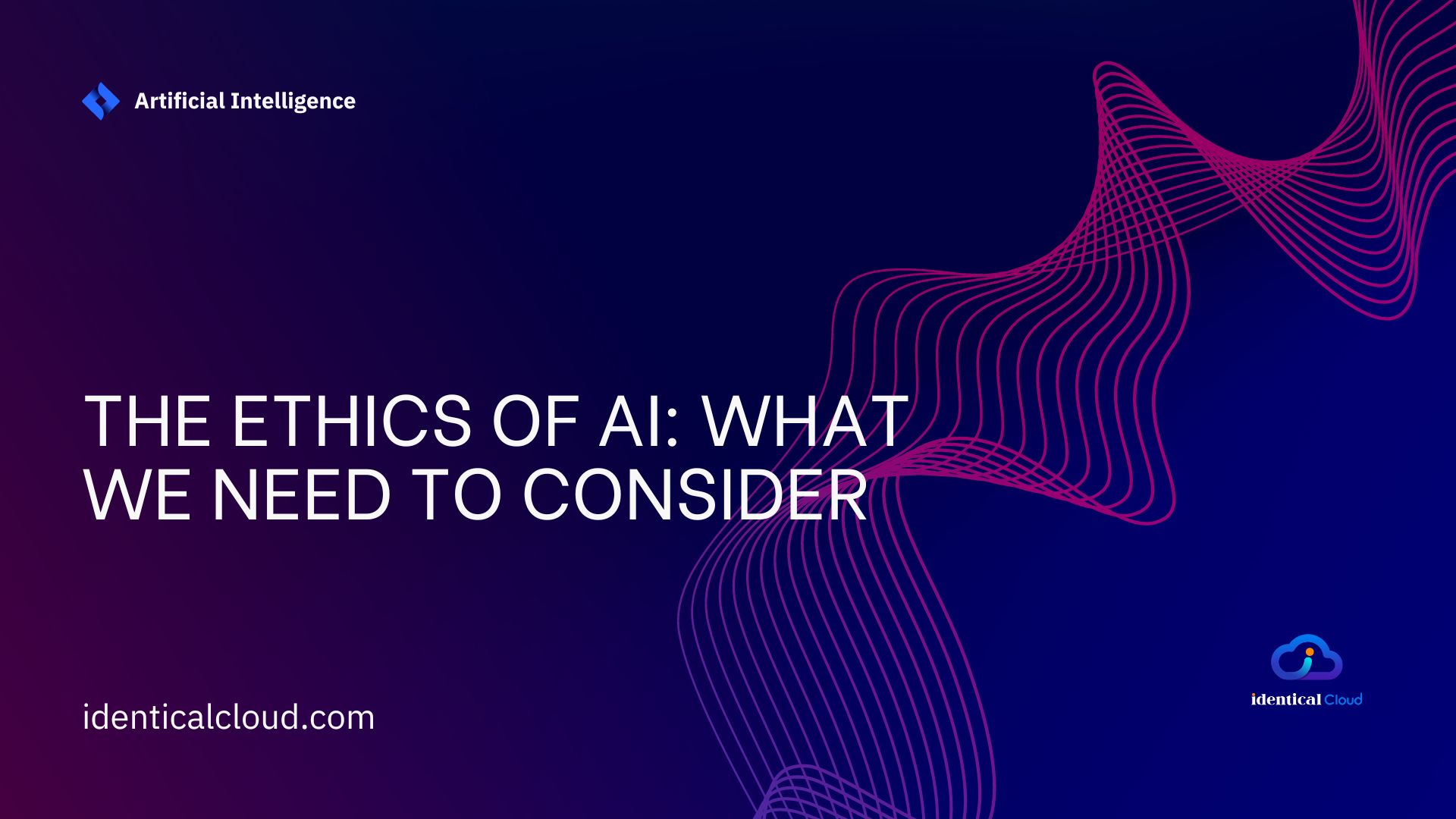
The Ethics of AI: What We Need to Consider
The Ethics of AI: What We Need to Consider
Artificial intelligence (AI) is rapidly changing the world around us. It is being used in a wide range of applications, from self-driving cars to medical diagnosis. As AI becomes more sophisticated, it is important to consider the ethical implications of its use.
In an age of rapid technological advancement, the integration of artificial intelligence (AI) into various aspects of our lives has ushered in a new era of possibilities. From enhancing efficiency to driving innovation, AI offers a multitude of benefits. However, as AI systems become more sophisticated, the ethical implications surrounding their use become increasingly complex.
In this blog, we will explore the critical ethical considerations that accompany the rise of AI, shedding light on the need for responsible development and deployment.
Defining Ethical AI
Transparency and Accountability:
Ethical AI necessitates transparency in its decision-making processes. Users and stakeholders should have a clear understanding of how AI arrives at its conclusions. Furthermore, developers and organizations must be held accountable for the outcomes of AI systems.
Fairness and Bias:
Ensuring that AI systems are fair and unbiased is paramount. Bias, whether intentional or unintentional, can lead to unjust outcomes and reinforce existing inequalities. Ethical AI aims to minimize biases and promote equity in decision-making.
Privacy and Data Protection:
Respecting user privacy and safeguarding their data are essential ethical considerations. AI systems must adhere to robust data protection measures to prevent unauthorized access or misuse of personal information.
Human Control and Autonomy:
Ethical AI should prioritize human control and autonomy. AI systems should assist and enhance human decision-making, rather than replace it entirely. Humans should retain the ability to intervene and override AI decisions when necessary.
The Importance of Ethical AI
Avoiding Unintended Consequences:
Unethical AI can lead to unintended consequences. If AI systems are not developed and guided by ethical principles, they may inadvertently cause harm, perpetuate biases, or compromise user privacy.
Social and Economic Impact:
AI technologies have the potential to reshape industries and economies. Ethical considerations are crucial to ensure that AI benefits all segments of society and does not exacerbate inequalities.
Trust and Adoption:
Ethical AI is foundational to building trust among users, stakeholders, and the general public. Without ethical guidelines, users may be hesitant to adopt AI solutions due to concerns about transparency, privacy, and fairness.
Addressing Ethical Challenges in AI
Clear Guidelines and Regulation:
Governments and regulatory bodies play a vital role in establishing clear guidelines and regulations for the development and use of AI. These regulations can ensure that AI is developed and deployed in ways that prioritize ethical considerations.
Ethical Training and Education:
AI developers, data scientists, and engineers should receive training on ethical considerations and principles. By fostering an understanding of the ethical implications of AI, professionals can make more informed decisions during the development process.
Multi-Stakeholder Collaboration:
Ethical AI requires collaboration among diverse stakeholders, including researchers, policymakers, industry leaders, and ethicists. Collective efforts can lead to comprehensive ethical frameworks that address various perspectives.
Continuous Monitoring and Auditing:
Regular monitoring and auditing of AI systems are essential to identify and rectify any ethical issues that may arise over time. This ongoing process ensures that AI remains aligned with ethical principles.
Here are some of the ethical issues that we need to consider when developing and using AI:
- Bias: AI systems are trained on data, and if that data is biased, the AI system will be biased as well. This could lead to discrimination against certain groups of people.
- Privacy: AI systems can collect and store a lot of data about us. This data could be used to track our movements, monitor our behavior, and even predict our future actions. This raises concerns about privacy and surveillance.
- Safety: AI systems can make decisions that have a real-world impact on people’s lives. If an AI system makes a mistake, it could have devastating consequences. We need to make sure that AI systems are safe and reliable before we put them into widespread use.
- Accountability: Who is responsible for the actions of an AI system? If an AI system makes a mistake, who is to blame? This is a complex question that we need to answer before we can fully embrace AI.
These are just some of the ethical issues that we need to consider when developing and using AI. It is important to have a public conversation about these issues so that we can develop AI in a responsible way.
As AI continues to reshape our world, it is imperative that we navigate its development with a strong ethical compass. By addressing issues of transparency, fairness, privacy, and human control, we can create AI systems that truly benefit society while mitigating potential harm. The ethics of AI require continuous dialogue, collaboration, and vigilance to ensure that the immense potential of AI is harnessed responsibly and ethically. Only by prioritizing these considerations can we usher in an era of AI that enhances human lives while upholding our values and principles.
